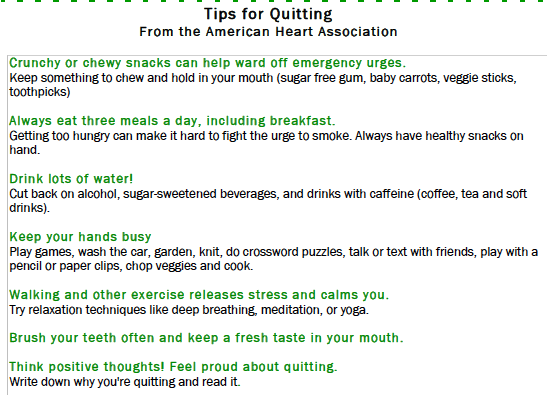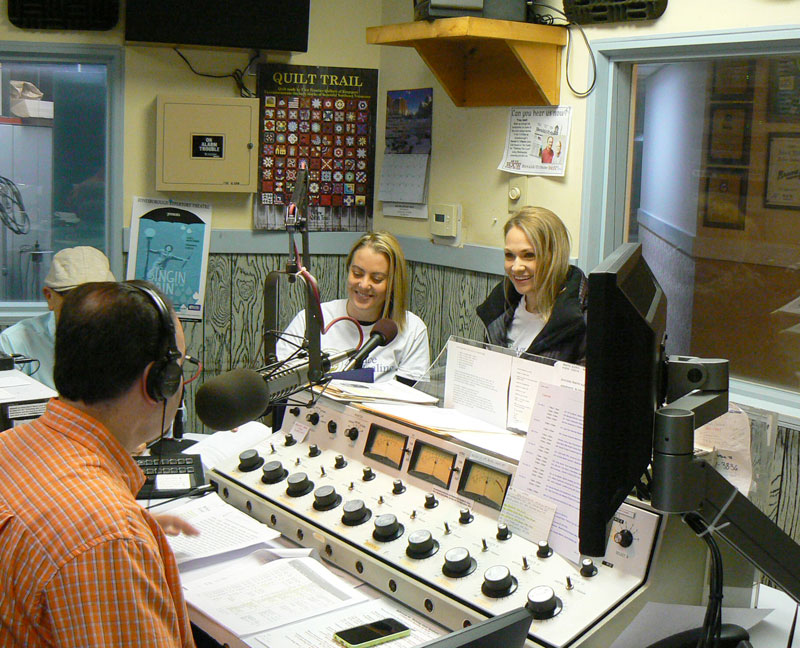We all know that smoking is “bad” for us, but what does that really mean?? This past week marked the American Cancer Society’s Great American Smokeout, an ongoing event that, since the 1970s, has aimed to challenge people to quit smoking and learn how to stay tobacco-free.

Did you know smoking puts you at risk for high blood pressure, high cholesterol, diabetes, heart disease, aneurysm, stroke, respiratory disease and most cases of lung cancer, and even cataracts
and acid reflux? Eating poorly along with smoking raises your risk for these
illnesses even more.
In my latest article in Health and Wellness Magazine I do a deep dive on the nutritional effects of tobacco use and how it negatively effects virtually every part of how your body functions. Here are some highlights:
Increased Nutritional Needs
- Research shows smokers tend to eat less nutritious diets— for example, eating more calories, saturated fat, and less fiber and vitamins than nonsmokers. At the same time, smoking depletes the body of large amounts of antioxidant nutrients like Vitamin C and E, which the body uses to combat the oxidative stress caused by toxins in tobacco smoke.
Smokers should aim for an extra 35 milligrams (mg) of vitamin C per day than nonsmokers.
The Importance of Weight Management and Physical Activity
- Studies show that smokers who are also obese (BMI of over 30) live 13 years less
than smokers who are at a healthy weight. While many smokers believe smoking
helps them lose weight, science shows that heavy smokers are more likely to be
overweight, especially around the waist, building up fat around vital organs.
Focus on whole grains, fruits, vegetables, beans, nuts, seeds—with plenty of water and enough physical activity and exercise to help keep your weight healthy and stable. A healthy weight, exercise, and eating nutritious foods help combat the damage and risk for disease caused by smoking.
An estimated 36.5 million Americans smoke cigarettes, and tobacco use is the single largest preventable cause of premature death in the world. Don’t be a statistic, COMMIT TO QUIT!

Learn the benefits of Dietitians in Integrative and Functional Medicine
Monique Richard, MS, RDN, LDN believes that given the right "tools" the body can heal itself. This is a Dietitians in Integrative and Functional Medicine approach.
Increase your Nutrition IQ one bite at a time.
The benefits of working with a Registered Dietitian Nutritionist is having the ability to collaborate on a healthy, clear-cut plan that works best for you and your individual nutrition needs. It's about understanding what nutrition [...]
Raising awareness about eating disorders in our region
This aired live on media blitz day. We arrived at 7:30 a.m. and had a great interview with Tim Cable and his "Thinking Out Loud" radio show.
Daytime Tri-Cities
Daytime Tri-Cities gave us time this morning to talk about our Storytelling Fundraiser on Feb 10 benefiting A Place Of Healing in Johnson City.
Post a comment:





